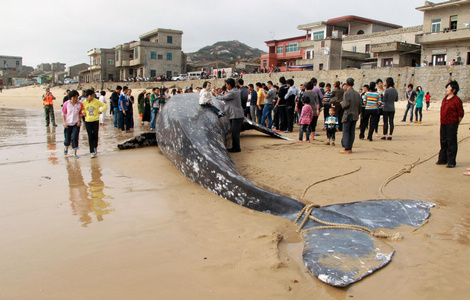Civil servants to be taught ethical behavior
Updated: 2011-11-07 07:40
By Wang Huazhong (China Daily)
|
|||||||||||
BEIJING - Public servants are to receive systematic and compulsory training in ethics over the next five years, according to the State Administration of Civil Service.
The ethics campaign, which will be "of great significance" in lifting public confidence in the government and in civil servants as well as in consolidating the Party's governance position, will be carried out from 2011 to 2015, it announced.
Civil servants in senior positions, or those who "directly face or serve the public", will receive intensive training as they are regarded as the key recipients of the training, it added.
According to the announcement, government employees are required to complete a training course of no less than six hours as part of a "long-term" training mechanism.
The training will include lectures and case studies to improve civil servants' loyalty to the country and people, as well as their sense of responsibility and honesty.
The State Administration of Civil Service also said in the announcement that the ethical standard of performance will always be taken into account in selecting, evaluating and supervising civil servants.
There are 6.78 million civil servants in China, according to the Ministry of Human Resources and Social Security, more than 60 percent of them work at the grassroots level.
Experts on governance administration and administrative laws have welcomed the campaign, saying such a move is necessary to improve officials' self-discipline and to boost public confidence in the government amid extensive exposure of improper behavior by civil servants.
Scandals, such as that of a Chongqing district official who allegedly terminated a local real-estate development because it jeopardized the fengshui of his government building, have aroused widespread public anger, and many high-profile corruption trials, such as those of the former deputy mayor of Shenzhen city, Xu Zongheng, former deputy mayor of Beijing, Liu Zhihua, and former deputy chief of Chongqing public security bureau, Wen Qiang, have undermined the public's trust in officials.
Jiang Ming'an, a professor on administrative law at Peking University, said the campaign is being launched at a time when the number of corruption cases is increasing and when public dissatisfaction with officials has been soaring.
"Laws overlap ethics, but the law cannot fully cover all ethical issues, such as extramarital affairs, which tend to lead officials into corruption. The training in ethics can supplement the legal education."
Shi Hexing, a researcher with the Chinese Academy of Governance, warned that: "The most detrimental consequence of deteriorating ethics among civil servants, if not reversed, is the loss of public confidence."
He said the new training program should strive to reduce the occurrence of misbehaver, promote social values and improve the competence of civil servants.
Hot Topics
Libya conflict, Gaddafi, Oil spill, Palace Museum scandal, Inflation, Japan's new PM, Trapped miners, Mooncake tax, Weekly photos, Hurricane Irene
Editor's Picks

|

|

|

|

|

|







